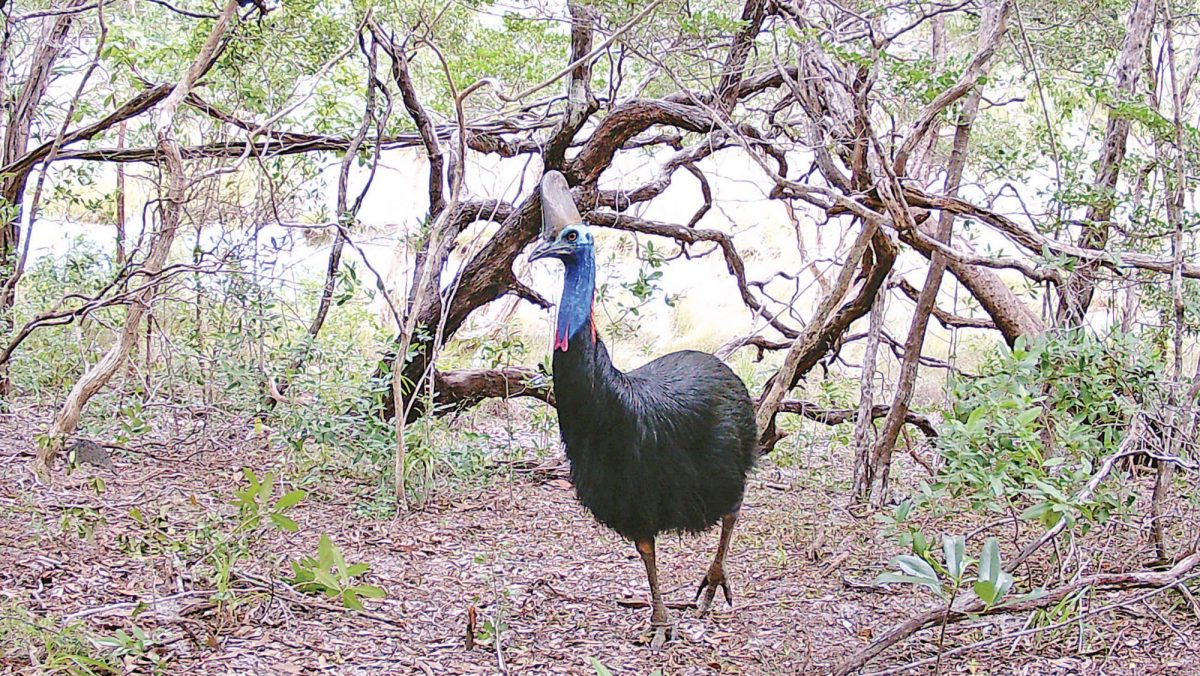
A cassowary caught on a trail camera in the Northern Peninsula Area.
AFTER years without even a single sighting, a significant cassowary population has been discovered living in a remote section of northern Cape York.
World Cassowary Day arrived at a significant time for the Ipima Ikaya Traditional Owner clans with at least 10 of the endangered birds found in a remote section of Apudthama National Park.
The findings are part of the first formal ‘Wadthuuny’ (cassowary) survey to be conducted on Gudang Yadhaykenu country in the Ussher Point area.
“The recent findings of these cassowaries is good news for myself and my people,” Myiesha Yoelu, of the Ipima Ikaya Aboriginal Corporation said.
“I’ve never been so excited when seeing the report. Wadthuuny play a key role in our rainforests ecosystem and it’s nice to see that our country is now the home of 10 or more cassowaries.
“I think the next step moving forward is for us to further monitor them throughout country and take steps to protect this beautiful bird at all costs.”
Conducted between June and August 2022, the survey involved a five-day field trip during which camera traps were installed at strategic sites across 28km using lures resembling fruit.
Cameras captured 30 images of at least 10 cassowaries, identified as four adults, four brown sub-adults and two stripey chicks.
“Our team found more than we ever expected and we are over the moon,” consultant Wren Mclean said.
The results rule out the common perception that cassowaries in the region are extinct. This northern section of Apudthama National Park is not included in many formal cassowary distribution maps.
“The last memory of a sighting by traditional owners was estimated to be around 40 years ago,” Ms McLean said.
“These results have been both surprising and heartening. To discover a breeding population of cassowaries in an area where they had not been sighted for so long … is wonderful news.”
In the report, Ms McLean noted the cassowary habitat was found to be relatively pristine with a low detection rate of feral pigs and no weeds or other feral herbivores recorded.
However, it is geographically restricted and thus the breeding population may be genetically isolated.
“Cassowaries remain a species of conservation concern and threats to this sub-population may be from inbreeding, reduced genetic diversity and increased extreme cyclones and wildfires in the face of climate change,” Ms McLean said.


